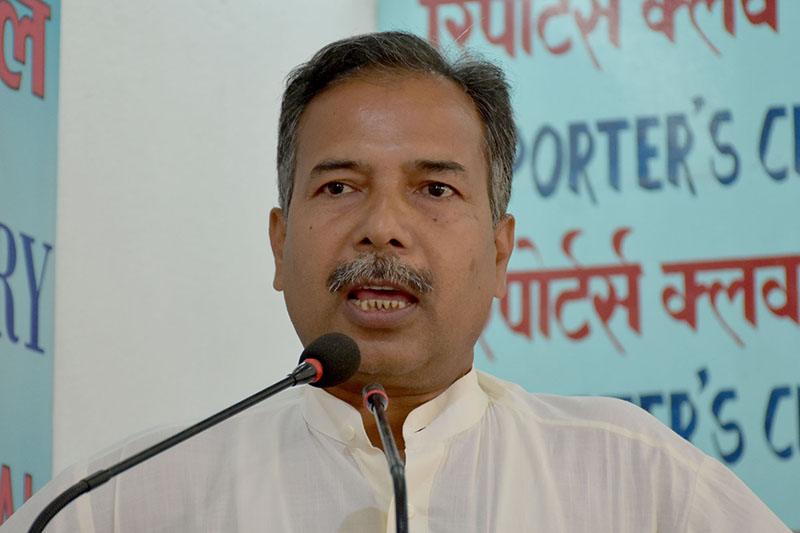Will FSF-N, RJP-N merger happen?
Kathmandu, December 22
The Federal Socialist Forum-Nepal recently formed a task force to hold unity talks with like-minded parties, but will that happen with the Rastriya Janata Party-Nepal with which the FSF-N fought elections jointly and now runs a coalition government in Province 2?
While FSF-N General Secretary Ram Sahay Yadav says unity with RJP-N is possible, Coordinator of RJP-N presidium Rajendra Mahato rejects any chance of unity at least for now.
“Unification of two or more forces takes time. One should not think the FSF-N and RJP-N, which failed to unite in the
past, will not be able to do so now,” Yadav said when asked about the possibility of merger between the two parties. He said the parties had fought the provincial and parliamentary elections jointly and that created favourable environment for unity. “We have seen that two parties can narrow down differences over time and eventually unite,” he said.
Mahato, however, said his party was ready to unite with like-minded parties but unity with the FSF-N was not possible due to deep ideological and other differences. “We marked a black day to protest discriminatory provisions in the constitution, while the FSF-N celebrated the constitution,” he said and added that FSF-N Chair Upendra Yadav had ignored the call to unite when six parties merged last year to create the RJP-N.
Both parties have pledged to work to empower Madhesi, Janajati, Dalits, women, minorities and other marginalised groups.
Political analyst Chandra Kishore said FSF-N’s talks offer was largely a strategic move to gain people’s sympathy. “If these parties want to unite, they can easily do so as both have merged with other forces recently, but FSF-N does not have a blueprint for unity with RJP-N,” he added.
He said the FSF-N, which was facing criticism within and outside the party for its handling of political affairs, wanted to give the message to the people of Madhes and international forces that it wanted to see marginalised communities of Nepal unite and that it was sincere about unity with the RJP-N. “But the FSF-N’s track record is not good because its unity dialogue with the erstwhile Sadbhawana Party and Tarai Madhes Democratic Party did not yield results,” he added.
Another political analyst Tula Narayan Shah said FSF-N’s effort to initiate unity talks with like-minded forces was aimed more at fringe parties that lost their existence in the last provincial and parliamentary elections due to minimum vote threshold. “I do not see any chance of merger between the FSF-N and the RJP-N because the RJP-N has emerged as an alternative force that can counter the FSF-N in the Madhes,” he said, adding, “ I do not think FSF-N Chair Upendra Yadav will ever accept RJP-N leaders as his seniors. Neither will RJP-N leaders accept Yadav as their leader.”






